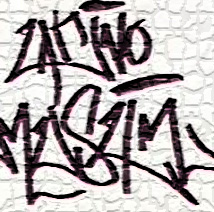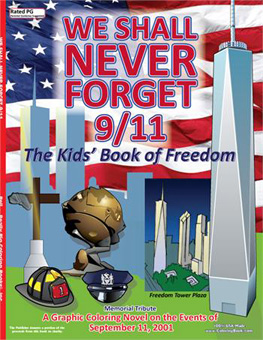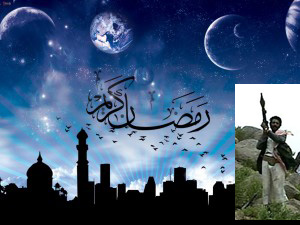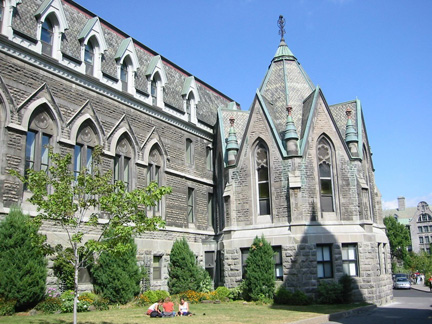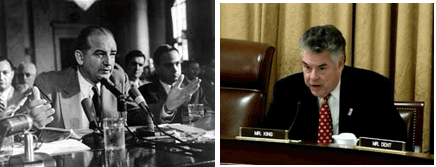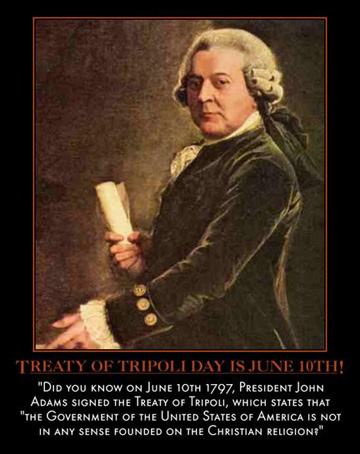
Yes, a treaty and not a Humean treatise, although Hume’s treatise on Religion no doubt had an influence on the creators of the text. The third treaty established by the young United States, recently liberated from British rule, with the nations of the “Barbary Coast” was with the Bey of Algiers in 1797. Like the earlier two treaties, the focus was on maritime trade in the Mediterranean and the problem of Barbary “pirates” as well as neutrality of the Barbary states when the U.S. was battling other “Christian” powers. Our Founding Fathers (for surely those members of Congress in 1797 were as close to being Founding Father’s as Sarah Palin’s contorted dubbing of John Quincy Adams, who had just turned 20 and had yet to enter politics) were obviously not working hard to free slaves (as these treaties will bear out), but they did stress a point that many rightwing pundits conveniently gloss over: the United States was not created as a “Christian nation.”
As you read the treaty below, in celebration of the 4th of July, note article 11 in particular. It turns out that the translation provided to Congress by Joseph Barlow, is not very accurate and the original Arabic version did not contain what we find in Article 11. But in fact, Congress never knew that and only saw the version printed here; this was accepted unanimously and then acknowledged as well by President John Adams at the time. So it was certainly not the contention of the Dey of Algiers that the U.S. was not a Christian nation, but an idea that resonated well with the young Congress.
Treaty of Peace and Friendship, signed at Tripoli November 4, 1796 (3 Ramada I, A. H. 1211), and at Algiers January 3, 1797 (4 Rajab, A. H. 1211). Original in Arabic. Submitted to the Senate May 29, 1797. (Message of May 26, 1797.) Resolution of advice and consent June 7, 1797. Ratified by the United States June 10, 1797. As to the ratification generally, see the notes. Proclaimed Jane 10, 1797.
[Translation]
Treaty of Peace and Friendship between the United States of America and the Bey and Subjects of Tripoli of Barbary.
ARTICLE 1.
There is a firm and perpetual Peace and friendship between the United States of America and the Bey and subjects of Tripoli of Barbary, made by the free consent of both parties, and guaranteed by the most potent Dey & regency of Algiers.
ARTICLE 2.
If any goods belonging to any nation with which either of the parties is at war shall be loaded on board of vessels belonging to the other party they shall pass free, and no attempt shall be made to take or detain them.
ARTICLE 3.
If any citizens, subjects or effects belonging to either party shall be found on board a prize vessel taken from an enemy by the other party, such citizens or subjects shall be set at liberty, and the effects restored to the owners. Continue reading An American Treaty on Religion →

